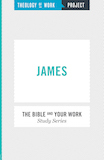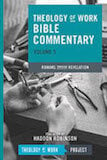Discriminating Against the Poor and Currying Favor with the Rich (James 2:1–13)
Bible Commentary / Produced by TOW Project.jpg)
Executive Health Care Makes its Biggest Impact on Poor Workers |
James applies both of his underlying principles as a warning against favoritism toward the rich and powerful. He begins with the second principle—working for the benefit of others in need. “You do well if you really fulfill the royal law according to the scripture, ‘You shall love your neighbor as yourself.’ But if you show partiality, you commit sin” (James 2:8–9). The sin is that when we favor the rich and powerful, we are serving ourselves rather than others. This is because the rich and powerful have the potential to bestow a bit of their riches and power on us. The poor can do nothing for us. But they are the people in need. James illustrates the point by depicting the special treatment that a wealthy, well-dressed person might be given in church, while a poor, shabby person is treated with contempt. Even in something as simple as coming to church, the poor are in need of a word of welcome. The rich—being welcomed everywhere—are not in need.
James draws on Leviticus 19:18—“Love your neighbor as yourself”— to indicate that showing favoritism toward the rich and excluding or slighting the poor is no less an offense against God’s law than murder or adultery (James 2:8–12). Doing this means that either we are not treating our neighbors as ourselves, or we are failing even to recognize that a poor person is our neighbor.
Although James is talking about church gatherings, there are workplace applications. At work, we can pay attention to people who can help us or to people who need our help. In a healthy workplace, this might be merely a matter of emphasis. In a dysfunctional workplace—where people are pitted against each other in a struggle for power—it takes courage to stand on the side of the powerless. Refusing to play favorites is especially dangerous when we are faced with socially entrenched favoritism such as ethnic discrimination, gender stereotyping, or religious bigotry.
Although James couches his argument in terms of working to benefit others in need, this application implicitly raises the principle of trusting in God. If we truly trusted God for our provision, then we wouldn’t be tempted to favor the rich and powerful so much. We wouldn’t be afraid to associate ourselves with the unpopular crowd at work or school. James is not exhorting us to do good works despite lacking faith in Christ and trusting God’s provision. James is demonstrating how good works are made possible by faith in Christ. Ironically, the poor themselves already live this truth on a daily basis. “Has not God chosen the poor in the world to be rich in faith and to be heirs of the kingdom that he has promised to those who love him?” (James 2:5). This is likely an allusion to Jesus’ words in the Sermon on the Mount or Plain (Matt. 5:3; Luke 6:20). The poor are not inheriting the kingdom because they are better people than the rich, but because they put their trust in God. Lacking the means to depend on themselves, or to curry favor with the rich, they have learned to depend on God.








